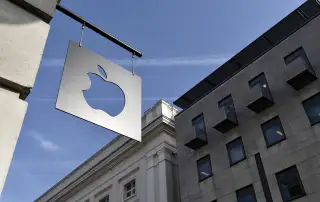CEOs Love Buybacks. But Should You?

On Monday, Apple Inc. reported another knock-out quarterly profit and said it would return an eye-popping $200 billion to shareholders by March 2017 through a combination of dividends and share buybacks. Pundits have been debating whether that's a smart strategy.
Apple shareholders—and other investors who can look forward to corporate goodies being announced this earnings season—may have a more immediate question: What's better, getting a dividend check or letting management spend the money to snap up shares?
By earmarking $140 billion of the $200 billion for repurchasing shares, Apple appears to favor buybacks. That's a stance popular across corporate America. Last year, companies in the S&P 500 spent $550 billion on buybacks vs. $350 billion on dividends. But it's not necessarily clear buybacks are always the best option.
Keep in mind that, in an ideal situation, companies wouldn't buy back stock or pay dividends. Instead, they'd re-invest profits to grow their businesses and generate even more profits in the future. But even the most promising companies can grow only so much for so long before they run out of highly compelling ideas for further investment—at which point they have an obligation to start paying out profits to shareholders, who can invest the money as they see fit. And it appears that Apple, having amassed nearly $200 billion in cash, is no longer confident it can profitably invest all that money.
Companies like Apple looking to hand cash back to investors have two basic routes. They can simply write a check to existing shareholders in the form of a dividend. Or they can use the money to buy out some of those shareholders—a so-called buyback—which essentially leaves each of the remaining owners with a bigger slice of the company and its profits.
In theory all companies should eventually aim to pay out profits directly. After all, the prospect of future dividends is the reason a stock has value in the first place. But in the meantime, buybacks can benefit investors by boosting the stock price—since every remaining share represents a bigger claim on the same pool of corporate assets.
So which route is better?
Economic theory suggests they should be roughly equivalent. But the tax code isn't always based on economic theory—and it turns out the IRS gives buybacks a big advantage. When a company hands you a dividend check, you owe taxes on that income in the current tax year even if you plan to re-invest the dividend and hold the stock for years. By contrast, when a company buys back shares and the share price goes up as a result, you owe no taxes until you actually sell the stock, which could be years in the future.
But taxes alone don't settle the question—and buybacks aren't necessarily all they're cracked up to be.
For one thing, many smart investors, including Warren Buffett, promote buybacks when management believes shares are undervalued. The problem is that most managers turn out to be just as bad as the rest of us at gauging whether the market has placed the right value on their shares. Case in point: Many companies went on buy-back sprees in the early part of the last decade, only to look like they'd squandered shareholders' money when the 2008 financial crisis hit.
Another knock against buybacks: They give management too much discretion. Like Apple, many companies grab headlines by announcing the total amount they'll use to buy back shares over a period of years. That gives managers the flexibility to buy the shares when prices look advantageous. A dividend, by contrast, is a less splashy quarterly obligation for a company's managers, who know that the stock market doesn't react well to dividend cuts. And just because management chafes at such restrictions, doesn't mean you should. Especially in an era of push-over boards, many investors see a regular dividend as one of the few reliable ways to hold managers to account.
Finally, critics of buybacks argue that they ultimately benefit managers more than shareholders. The reason? Executive compensation is typically tied to share price, an effort to align the interests of management with those of shareholders. But it doesn't always work because an executive can use buybacks to hit short-term stock price goals at the expense of his company's long-term interests—by skimping, for example, on expensive but necessary research and development.
That's probably not an issue for Apple, considering its $200 billion bank account. But research suggests it may be for the broader market.
The upshot: It's easy to see why managements prefer buybacks. But investors—especially those with the bulk of their savings in a 401(k) or IRA, where taxes aren't an issue—may be better off with an old-fashioned dividend.